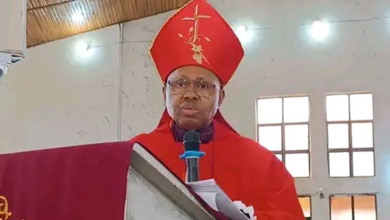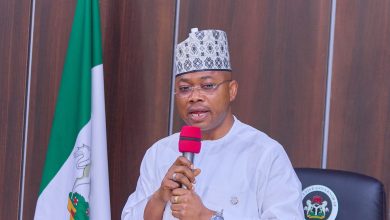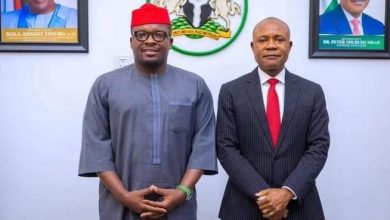Civil Servants Steal More Than Politicians, Says EFCC Chairman Olukoyede
Civil servants, not just politicians, are at the heart of Nigeria’s corruption crisis, says EFCC chairman.
He reveals they’ve stolen even more public funds than elected officials.
The Chairman of the Economic and Financial Crimes Commission (EFCC), Ola Olukoyede, has raised serious concerns about the role of civil servants in Nigeria’s corruption crisis, revealing that they are responsible for stealing more public funds than politicians.
Olukoyede made this revelation during a candid interview shared on his official X (Twitter) handle over the weekend. According to him, while politicians are often seen as the face of corruption in Nigeria, civil servants particularly those in key financial and administrative positions are deeply entrenched in fraudulent activities that drain the nation’s resources.
He emphasized that the level of corruption within the civil service is not only widespread but alarmingly sophisticated. In one striking example, Olukoyede said the EFCC investigated a ministry where a total of N33.7 billion had been misappropriated. Shockingly, only N3 billion of that sum was linked to the minister in charge, while the remaining N30.7 billion was traced to senior civil servants, including directors of finance and procurement.
“This disparity highlights the significant role civil servants play in corruption, often more so than politicians,” Olukoyede explained. “From our investigations, we have found that the bulk of looted funds in many ministries are controlled and managed by establishment figures these are the people who remain in the system even as political appointees come and go.”
Olukoyede further described these “establishment people” as the engine room of long-term corruption in the public sector. Unlike politicians, who often have limited tenure, civil servants retain their positions for decades and are able to build intricate networks of financial manipulation.
He also stressed that corruption in Nigeria is not exclusive to government institutions. According to the EFCC boss, the private sector is equally complicit in corrupt practices. “There is no doubt that we have corruption in the public service, but I will tell you also that the private sector is as bad as the public sector from all the investigation work we have done,” he said.
Despite the public perception that most corrupt dealings are political, Olukoyede urged Nigerians to shift their focus and demand accountability from career bureaucrats who operate behind the scenes.
Backing up his claims with field data, the EFCC chairman revealed that most luxury homes in highbrow areas of Abuja, such as Asokoro and Maitama, are owned by civil servants. “Statistics have shown that. We have evidence to prove it,” he said, noting that the Commission has traced numerous real estate assets to serving or retired civil servants.
Addressing questions about why these revelations haven’t always led to more publicized prosecutions, Olukoyede explained that EFCC investigations are methodical, relying heavily on documentary evidence. “When you trace money to people and you find it in the names of their children, spouses, or close associates, and then they own up during interrogation, it strengthens our case significantly,” he noted.
He added that suspects rarely deny ownership of the money once presented with clear proof. In cases where civil servants have admitted to owning suspicious assets or bank accounts, the Commission has been able to move swiftly to recover stolen funds and prosecute those involved.
Olukoyede called for a renewed national focus on cleaning up the civil service, describing it as a critical step in Nigeria’s anti-corruption war. “We must beam our searchlight on the establishment people, on the core civil service sector permanent secretaries, directors, and generally civil servants,” he said.
He reiterated the EFCC’s commitment to rooting out corruption in all its forms, pledging that the Commission would not be deterred by status or influence. “We are building cases based on evidence, not sentiment. Whether it is a politician or a civil servant, if you are caught, you will face justice.”
As the EFCC intensifies its crackdown on financial crimes, Olukoyede’s revelations highlight the urgent need for institutional reform and greater public awareness about where Nigeria’s real corruption problems lie.



